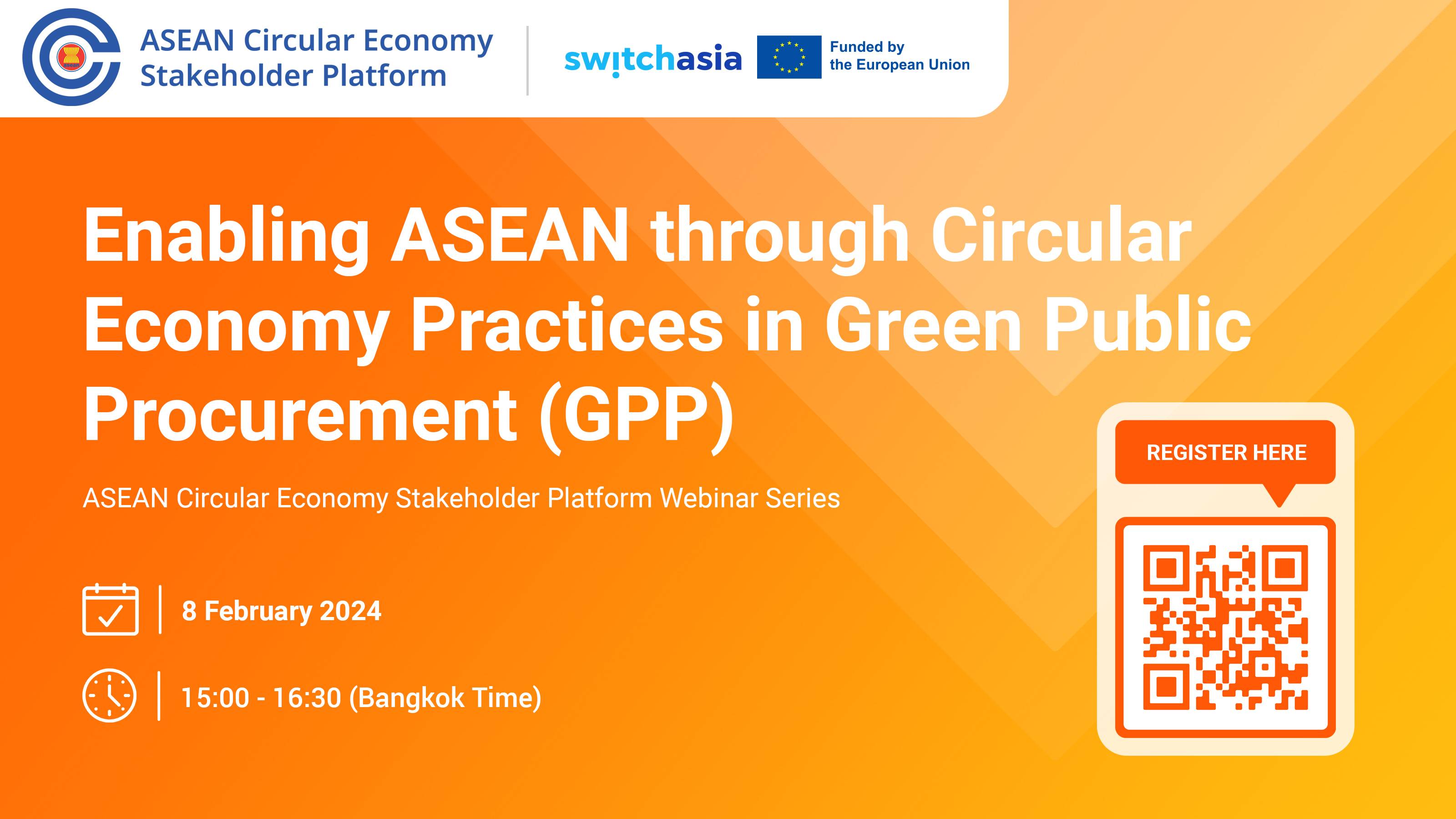
WHEN: 8 February 2024 I TIME: 15:00 - 16:30 (Bangkok Time) I Platform: ZOOM I Watch the Recording HERE
Background:
In response to the mounting global environmental challenges presented by the triple planetary crisis—namely, climate change, biodiversity loss, and the accumulation of waste and pollution—the public sector is increasingly acknowledging the need for a strategic approach. This approach aims to leverage market disruption through its purchasing power, thereby driving demand for sustainable products and responsible services. Simultaneously, it seeks to minimize environmental footprints, as well as mitigate social impacts and economic disparities arising from procurement practices.
Transitioning to the next point, governments, often positioned as major consumers and frequently the largest purchasers within a country, play a pivotal role. In this context, Green Public Procurement (GPP) represents a significant opportunity, estimated at USD 11 trillion. This figure accounts for 12 percent of the global GDP, offering substantial leverage in fostering the Circular Economy (CE). The European Commission defines Green Public Procurement as a process where public authorities aim to procure goods, services, and works with a reduced environmental impact throughout their lifecycle, compared to those with the same primary function that would otherwise be procured.
Over the past two decades, GPP has evolved into a system innovation and a multi-stakeholder tool. This evolution necessitates collaborative efforts to formulate guidelines, clearly defining “sustainable products and services.” It encourages the private sector to reinvent the procurement system and invest in research and development. These investments are geared towards providing supplies that adhere to these guidelines. The fundamental link between GPP and the circular economy is rooted in their shared objective of addressing the triple planetary crisis and promoting Sustainable Consumption and Production (SCP).
Consequently, the circular economy plays a crucial role in shaping GPP. In essence, the circular economy provides the guiding principles, while GPP acts as the implementation strategy, making the circular economy a tangible reality. GPP has been instrumental in driving various market shifts, promoting the adoption of sustainable products and services. These include renewable energy, electric vehicles, energy-efficient appliances, water-efficient technologies, innovative and sustainable materials, organic and less harmful chemicals, healthy food options, regenerative practices, and resource retention, among others.
In recent years, GPP has gained momentum in the ASEAN Member States (AMS), being incorporated into the national strategies of Thailand, Malaysia, Singapore, Cambodia, Vietnam, Lao PDR, Indonesia, and the Philippines. Furthermore, GPP was recently included in the ASEAN Sustainable Consumption and Production Framework. This inclusion highlights key actions emphasizing efficient raw material use to minimize chemical use, waste, and emissions. Additionally, it promotes sustainable transitions of SMEs through capacity building, aligning them with global standards.
Despite these positive developments, numerous challenges still hinder the effective implementation and advancement of GPP in the region. These challenges include the absence of standardized guidelines, limited capacity and resources, inadequate infrastructure and supplies, diverse cultural and socio-economic contexts, and market competitiveness. Addressing these challenges will necessitate collaborations among all regional stakeholders. Such cooperation is essential to bridge policy gaps, fully realizing GPP's potential and its transformative impact on the circular economy.
Webinar Session:
The ASEAN Circular Economy Stakeholder Platform (ACESP) and the EU SWITCH-Asia Policy Support Component (co-host), are convening the webinar, Enabling ASEAN through Circular Economy Practices in Green Public Procurement (GPP). The webinar aims to provide the global framework for Green Public Procurement and the regional framework of the Green Public Procurement Action under the ASEAN Sustainable Consumption and Production Framework, while sharing tangible examples of current practices with their opportunities and challenges. The session will highlight how GPP helped shape the powerful shift of the global market toward circular economy and discuss a way forward to bridge policy gaps making GPP effective in circularity transformations in the region.
About the ASEAN Circular Economy Stakeholder Platform Webinar Series
The webinar series, hosted by the ASEAN Circular Economy Stakeholder Platform and co-hosted by the EU SWITCH-Asia Policy Support Component, is strategically designed to foster the adoption of Sustainable Consumption and Production (SCP) practices in the context of the Circular Economy (CE) across the ASEAN region. Recognising the need for a comprehensive approach addressing both supply and demand aspects and bringing together diverse stakeholders, these webinars intend to raise awareness, promote understanding, and facilitate an inclusive dialogue on making the circular economy a tangible reality in the ASEAN region. Thereby, the series aims to strengthen networks and knowledge exchanges among institutions working towards shared sustainability goals.
Chairs:
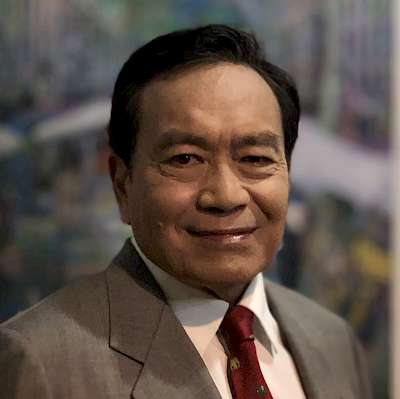 Anthony Pramualratana, ASEAN Circular Economy Stakeholder Platform
Anthony Pramualratana, ASEAN Circular Economy Stakeholder Platform
In July 2022, Dr. Anthony Pramualratana assumed the role of Deputy Executive Director at the ASEAN Centre for Sustainable Development and Studies Dialogue (ACSDSD). The ACSDSD garnered support from leaders during the 34th ASEAN Summit in Bangkok in June 2019 and was officially launched at the 35th ASEAN Summit in Bangkok in November 2019. Its primary objective is to advance research on specific sustainable development issues of mutual interest and facilitate dialogue among ASEAN Sectoral Bodies, Dialogues, and external partners, employing a comprehensive and cross-cutting approach. In September 2022, Dr. Pramualratana played a key role in establishing the ASEAN Circular Economy Stakeholder Platform, a regional facility aimed at helping ASEAN Member States (AMS) achieve sustainable consumption and production by accelerating the transition towards a circular economy.
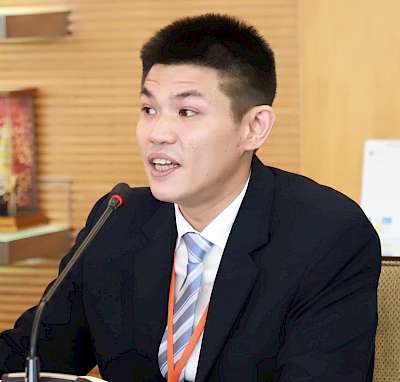 Treesuvit Arriyavat (David), Project Manager, ASEAN Circular Economy Stakeholder Platform
Treesuvit Arriyavat (David), Project Manager, ASEAN Circular Economy Stakeholder Platform
David is a PhD candidate in Management at the College of Management, Mahidol University, Bangkok, Thailand. He holds significant experience in managing projects within the ASEAN context. Currently, David serves as the project manager for the ASEAN Circular Economy Stakeholder Platform (ACESP) at the ASEAN Centre for Sustainable Development Studies and Dialogue (ACSDSD) at Mahidol University, Bangkok. In this capacity, he is responsible for establishing and overseeing the day-to-day operations of the ACESP Secretariat. This role encompasses various tasks, including project coordination, management of the knowledge and information portal, as well as communication and outreach efforts.
Moderators:
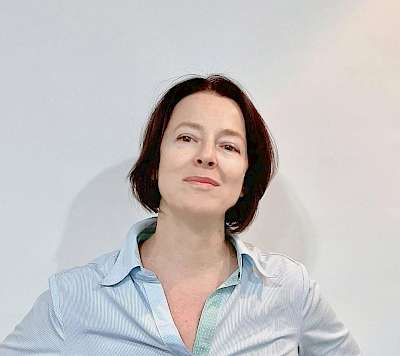 Zinaida FADEEVA, Team Leader at the SWITCH-Asia Policy Support Component
Zinaida FADEEVA, Team Leader at the SWITCH-Asia Policy Support Component
Zinaida Fadeeva is the Team Leader of the Policy Support Component of the SWITCH-Asia Programme. Zinaida has over 25 years leading international professional experience in policy for and practice of sustainable consumption and production (SCP) and Education for Sustainable Development, amongst others working with the United Nations University Institute for the Advanced Studies of Sustainability (UNU-IAS). Her work has focused on diverse topics such as tourism, plastics, construction, small and medium enterprises, procurement and lifestyle. Zinaida has worked extensively with governments, private sector, international organisations and academia in East, South East, South and Central Asia.
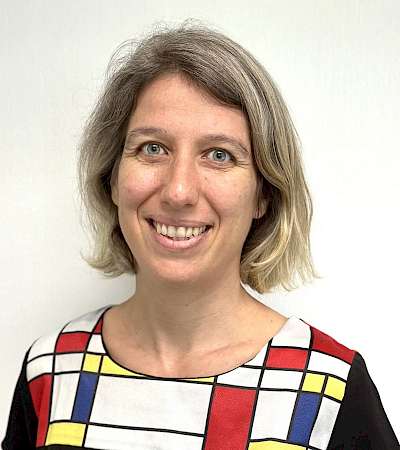 Elodie MARIA-SUBE, Expert on EU policy development and partnership building at the SWITCH-Asia Policy Support Component
Elodie MARIA-SUBE, Expert on EU policy development and partnership building at the SWITCH-Asia Policy Support Component
Elodie is the Key Expert on EU policy development and partnership building of the SWITCH-Asia Policy Support Component of the SWITCH-Asia Programme. She is specialized in European Affairs related to topics of circular economy, SCP, climate change and environmental management, and has extensive experience in stakeholder consultation and engagement at the EU level, as well as with high-level officials in Ministries of Environment and Finance in Asia. For over a decade, Elodie has worked in South and South-East Asia on environment and climate change. She is currently leading the SWITCH-Asia Technical Advisory project on Sustainable/ Green Public Procurement for Transformation.
Speakers
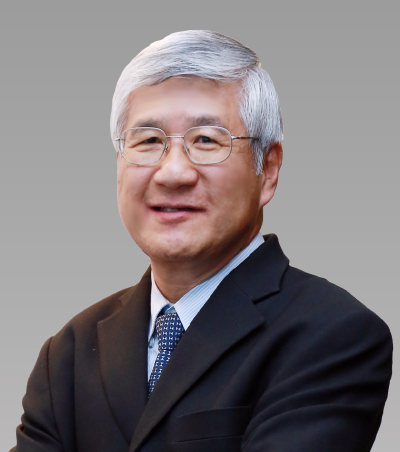 Assoc. Prof. Dr. Thumrongrut Mungcharoen (RUTT), Advisor and Executive Committee Thai SCP Network, Thailand
Assoc. Prof. Dr. Thumrongrut Mungcharoen (RUTT), Advisor and Executive Committee Thai SCP Network, Thailand
Dr. Thumrongrut graduated from the University of Texas at Austin. During his tenure at Kasetsart University, he has been an expert in several national and regional projects on cleaner technology, SCP (Sustainable Consumption and Production), and circular economy. He is one of the key figures who initiated several Thai national infrastructure projects such as the National Life Cycle Inventory Database, the Thai LCA (Life Cycle Assessment) Network, Carbon Footprint and Circular Mark certification schemes, and the Thai SCP Network. Since 2011, he has served as an expert in the Sub-committee on Promotion of Government Green Procurement Policy under the Ministry of Natural Resources and Environment. He is also a member of the national Circular Economy subcommittee, which falls under the national agenda on the Bio-Circular-Green Economy model, and a drafting committee member of the 13th National Economic and Social Development Plan, focusing on Circular Economy and Low Carbon Society for 2023-2027.
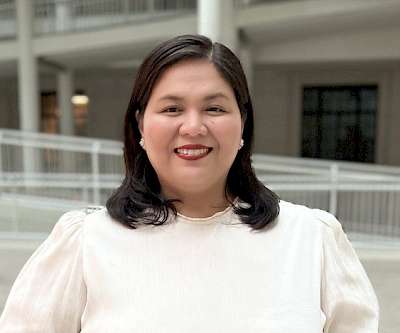
Rowena CANDICE RUIZ, Executive Director at Government Procurement Policy Board, Philippines
Atty. Rowena Candice Ruiz is an expert on digital transformation and public procurement. Her leadership has led to innovative reforms, focusing on data-driven policies, capacity building, and technology solutions for efficiency and transparency. She secured the Philippines' observer status in the World Trade Organization – Committee on Government Procurement in 2019. During the pandemic, she spearheaded digital transformation for crisis adaptation, fostering transparency in public funds through online portals. Recognized globally for her tech innovations in public services, she has been a driving force for green procurement and sustainable development in the Philippines.
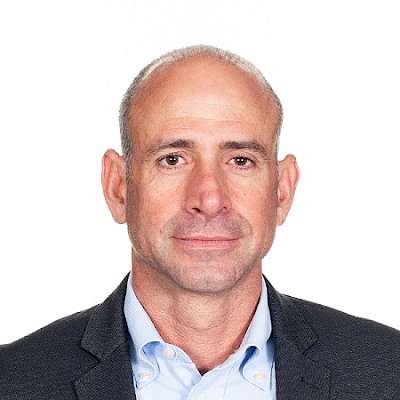 Hunt La Cascia, Senior Public Sector Specialist at the World Bank Group
Hunt La Cascia, Senior Public Sector Specialist at the World Bank Group
Hunt La Cascia is a Senior Public Sector Specialist at the World Bank's Governance Global Unit. He focuses on public sector reform, service, and knowledge functions to support the World Bank's global portfolio of projects with GovTech components. Hunt provides advice and support to government clients, global task teams, and governance staff in preparing and supervising projects with major GovTech investments. He plays a significant role in improving World Bank GovTech practices and approaches. Hunt works on GovTech initiatives such as Cloud Frameworks and Methodologies, Greening GovTech, Digital Economy Governance, and Anticorruption. He also leads initiatives to modernize procurement functions in World Bank client countries by spearheading global e-Procurement initiatives and other procurement reform activities, including Procurement Data Analytics, Green Public Procurement, and Emergency Procurement.
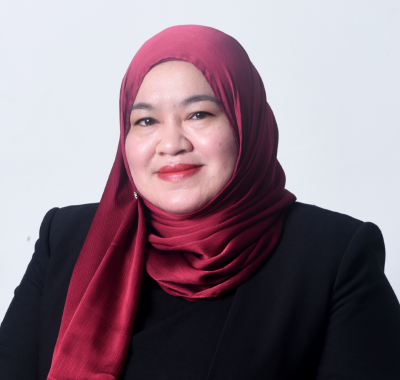 Sr Dr ASMAH ALIA MOHAMAD BOHARI, PQS Head of centre of studies Subject-Matter Expert (Green procurement, Green Construction & Contract Management)
Sr Dr ASMAH ALIA MOHAMAD BOHARI, PQS Head of centre of studies Subject-Matter Expert (Green procurement, Green Construction & Contract Management)
Sr Dr Asmah Alia Mohamad Bohari obtained her doctorate from Queensland University of Technology, Australia, in 2017, with a thesis focusing on exploring green procurement in the Malaysian construction industry. She actively participates in various international and local conferences presenting paperwork promoting green construction. She currently holds several publications in JCR and SCOPUS reputable international and national journals. Simultaneously, she was involved in research and consultation projects funded by Construction Industry Development Board Malaysia, Economic Planning Unit (EPU), Malaysian Green Technology and Climate Change Corporation, Ministry of Economy and United Nations Development Programme on green construction and procurement in Malaysia. She is also a member of professional bodies, Royal Institution of Surveyors Malaysia (RISM) and Board of Quantity Surveyors Malaysia (BQSM).
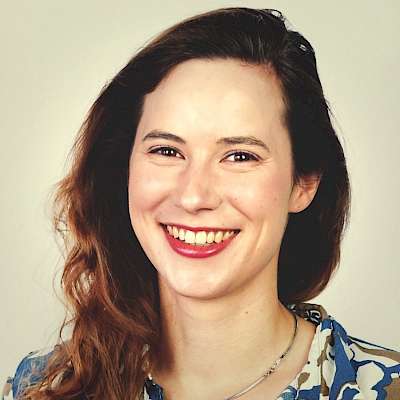 Helena O'Rourke-Potocki, Procurement Expert at ICLEI Europe
Helena O'Rourke-Potocki, Procurement Expert at ICLEI Europe
Helena O'Rourke-Potocki is a Procurement Expert at ICLEI Europe. She contributes circular public procurement expertise to various EU-funded projects such as CityLoops, BUS-GoCircular, the European Commission GPP Helpdesk, the Procura+ Network, among others. She works with local public authorities and public procurers from across Europe to better understand how to public procurement can be used as a strategic tool to support circular economy objectives. She previously worked as a Policy Research Officer for the Ellen MacArthur Foundation, where she analysed circular economy-related policies and developed a circular public procurement framework for city governments. She has also worked for the European Policy Centre, a Brussels-based think-tank, the European Commission's Directorate-General for Regional and Urban policy, Politico Europe and the former Polish Ministry of Infrastructure and Development, covering climate, energy, environmental, regional policy, and the circular economy. She holds an MSc in Environment and Development from the London School of Economics and Political Science (LSE) and a BA in Political Science and Geography from Trinity College Dublin.
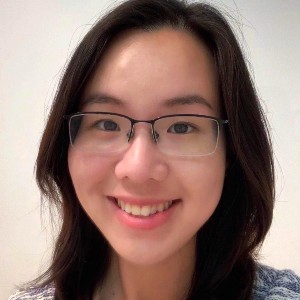 Jenny Yan Yee Chu, Procurement Specialist, ADB Procurement, Portfolio, and Financial Management Department
Jenny Yan Yee Chu, Procurement Specialist, ADB Procurement, Portfolio, and Financial Management Department
Jenny is the ADB focal point for sustainable procurement and provides technical support to the MDB Working Group on Sustainable Procurement. She led the development of the ADB Sustainable Procurement Guidance Note, country diagnostic for 41 ADB DMCs as well as related capacity building programme and procurement process update to support integration of sustainable procurement at country system and project level in ADB sovereign operations. Jenny is a chartered professional engineer and an admitted barrister and solicitor of the High Court of New Zealand with over 15 years' experience in the development and delivery of infrastructure projects.
Agenda
|
|
|
|
15:00 |
Introduction to the ASEAN Circular Economy Stakeholder Platform Anthony PRAMUALRATANA and Treesuvit Arriyavat (David), ASEAN Circular Economy Stakeholder Platform |
|
15:05 |
Green Public Procurement Framework and ASEAN Practice Elodie MARIA-SUBE, Key Expert on EU policy development and partnership building at the SWITCH-Asia Policy Support Component |
|
15:15 |
Panel Discussion: Shaping the Global Markets through GPP Power Moderated by Zinaida FADEEVA, Team Leader at the SWITCH-Asia Policy Support Component Hunt LA CASCIA, Senior Public Sector Specialist, World Bank Helena O'Rourke-Potocki, Procurement Expert at ICLEI Europe Jenny Yan Yee Chu, Procurement Specialist, ADB Procurement, Portfolio, and Financial Management Department |
|
15:40 |
Panel Discussion: GPP Innovations in ASEAN and the Roadmap to Regional Collaboration Moderated by Elodie MARIA-SUBE, Key Expert on EU policy development and partnership building at the SWITCH-Asia Policy Support Component Rowena CANDICE RUIZ, Executive Director at Government Procurement Policy Board, Philippines Assoc. Prof. Dr. Thumrongrut Mungcharoen (RUTT), Advisor and Executive Committee Thai SCP Network, Thailand Sr Dr ASMAH ALIA MOHAMAD BOHARI, PQS Head of centre of studies Subject-Matter Expert |
|
16:05
|
Q&A |
|
16:30 |
Concluding remarks and vote of thanks. Anthony PRAMUALRATANA and Treesuvit Arriyavat (David), ASEAN Circular Economy Stakeholder Platform |


